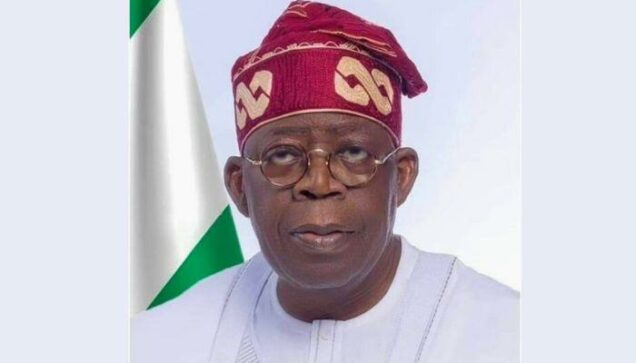The Peoples Redemption Party (PRP) has issued a stern warning against the escalating debt burden being shouldered by Nigeria, urging the National Assembly to reject President Bola Tinubu’s latest loan request. PRP National Chairman, Falalu Bello, expressed grave concerns over what he termed a “reckless borrowing spree” by the Tinubu administration, emphasizing that the country’s debt has ballooned to alarming proportions without commensurate improvements in infrastructure or overall development. With Nigeria’s public debt hovering around a staggering N144.7 trillion (approximately $94.2 billion), almost half of which comprises external loans, the PRP argues that further borrowing is unsustainable and detrimental to the nation’s future. Bello criticized the President’s pursuit of an additional $21.5 million, ¥15 billion in foreign loans, and a €65 million grant under the 2025-2026 borrowing plan, particularly when the country’s debt servicing costs have soared to N13.12 trillion in 2024, representing a 68% increase from the previous year.
The PRP’s core argument rests on the premise that borrowed funds are consistently mismanaged, plagued by corruption and a lack of accountability. Instead of being channeled towards critical infrastructure projects or social programs that could uplift the lives of ordinary Nigerians, these borrowed funds, according to Bello, are often diverted into frivolous projects and opaque contracts that benefit a select few. This alleged mismanagement, coupled with the escalating debt servicing costs, is creating a vicious cycle that further impoverishes the nation and mortgages its future. The party also points to the National Assembly’s insertion of over 11,000 new projects worth N6.93 trillion into the 2025 budget as further evidence of fiscal indiscipline. While acknowledging that some of these projects might appear beneficial in theory, the PRP questions their feasibility and accuses lawmakers of contributing to inefficiency and wasteful spending.
The PRP contends that Nigeria possesses the capacity to finance its development from internally generated revenue, negating the need for excessive borrowing. Bello cited the Federal Inland Revenue Service’s (FIRS) 2024 revenue of N21.6 trillion, surpassing its target by over 11%, and the Nigeria Customs Service’s 90% increase in revenue collection, reaching N6.1 trillion, as compelling evidence of the nation’s financial potential. Furthermore, maritime agencies like NIMASA, NSC, NPA, and NIWA collectively generated over N850 billion. The PRP argues that these figures demonstrate that the country is not lacking in resources but rather in the political will to combat corruption and enforce fiscal discipline, which are the real impediments to development.
The party also criticizes the government’s failure to deliver on the promises made following the removal of fuel and foreign exchange subsidies. Nigerians were assured that the removal would free up funds for development initiatives, but instead, according to Bello, it has resulted in increased hardship and a deepening poverty crisis. The PRP questions the whereabouts of the funds generated from the subsidy removal, emphasizing the discrepancy between the government’s promises and the stark reality faced by citizens who are bearing the brunt of the economic downturn. This lack of transparency and accountability further fuels the public’s distrust and underscores the need for a thorough audit of government spending.
The PRP’s call to action is directed at the National Assembly, urging lawmakers to prioritize the national interest by rejecting the President’s loan request. Instead of accumulating more debt, the party advocates for a full audit and transparency regarding existing debts, ensuring accountability for how borrowed funds have been utilized. Bello emphasizes the importance of holding leaders accountable for the alleged mismanagement of national wealth since 1999, stressing that the future of Nigeria depends on the collective resolve to resist further indebtedness and demand responsible stewardship of public resources.
In conclusion, the PRP’s stance is a strong indictment of the government’s fiscal policies and its approach to development. The party advocates for fiscal prudence, structural economic reforms, and a governance model that prioritizes the welfare of citizens over political and personal gain. The PRP’s call for a rejection of the loan request, coupled with its demand for transparency and accountability, reflects a growing concern about the long-term consequences of Nigeria’s escalating debt burden and the urgent need for a more sustainable and equitable approach to economic development. The party’s message underscores the importance of responsible governance and fiscal discipline in ensuring a brighter future for the nation.


